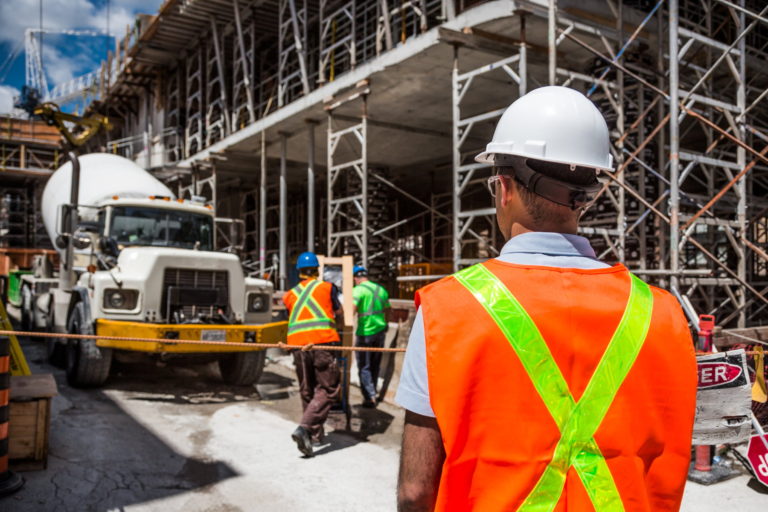Whether you’re a construction business owner, independent contractor, or worker, insurance may not be at the forefront of your mind when gearing up for your next project. Yet, it’s one of the most critical factors that can determine not only the financial health of your business but also its reputation in the industry. Without adequate insurance, you expose yourself to a host of risks that could turn your hard-earned success into a costly setback.
From financial losses to legal liabilities and missed opportunities, the risks of going uninsured in the construction industry are too significant to ignore. This article explores these risks, highlights real-life examples, and outlines how insurance can safeguard your business and livelihood.
Financial Risks of Being Uninsured
Uninsured construction businesses and workers are vulnerable to substantial financial losses. The nature of construction work—handling heavy machinery, operating at heights, and navigating high-risk environments—means accidents and injuries are not uncommon. And when those accidents occur without adequate coverage, costs can skyrocket.
Here are a few scenarios where the financial burden can be devastating:
- Accidents and Medical Bills: A construction worker fell from scaffolding on a site and faced steep medical bills for surgeries and rehabilitation. Because their employer lacked worker’s compensation insurance, the worker endured financial strain due to out-of-pocket expenses and lost wages.
- Property Damage Costs: A small construction company caused significant property damage during a large-scale renovation. Without general liability insurance, the company shouldered the repair costs, severely impacting their cash flow and delaying other projects.
- Equipment Damage or Loss: Whether from theft or accidental damage, uninsured equipment can incur replacement costs that can take a major toll on your finances—especially when operating a smaller business.
The bottom line is clear—insurance serves as a safety net that cushions businesses and individuals from such unforeseeable expenses.
Legal Liabilities and Lawsuits
The construction industry is no stranger to legal disputes and liabilities. Without adequate liability coverage, uninsured contractors and businesses risk facing severe financial consequences due to lawsuits.
Consider this scenario: An independent contractor was sued after a client tripped over an uneven surface on-site, sustaining serious injuries. Since they lacked professional liability insurance, the contractor was left to pay hefty legal fees and a potential settlement out of pocket.
This highlights how crucial it is to have coverage such as general liability and professional liability insurance. These policies can protect you from costs related to client injuries, legal defense, and damages. Without them, a single lawsuit has the potential to drain your resources or even shut down your business entirely.
Project Bidding Limitations
Insurance isn’t just a financial safeguard; it’s often a non-negotiable requirement when bidding on projects. Many high-profile clients and government contracts mandate specific insurance policies as part of their qualification criteria.
For instance: A construction company was disqualified from bidding on a lucrative government project due to inadequate liability coverage. This missed opportunity represented a significant loss in potential revenue and business growth.
Failing to have proper insurance can limit your opportunities in the competitive construction industry. Having the right policies in place not only fulfills these requirements but also signals to potential clients that you are reliable, professional, and prepared for any risks.
Damage to Business Reputation
Reputation is everything in the construction industry. Word travels fast in this close-knit community, and businesses lacking insurance might be viewed as irresponsible or untrustworthy. Potential clients and partners may hesitate to work with you, fearing risks that could arise from your lack of coverage.
Imagine explaining to a client that their property damage, caused by an on-site mistake, won’t be covered due to your lack of insurance. The fallout of such an event could tarnish your reputation, leading to lost clients and difficulty securing future jobs.
Being insured instills confidence in your clients, assuring them that any potential risks are mitigated. It positions you as a professional who takes their business and customer relationships seriously.
Coverage Options for Construction Businesses
To protect yourself and your business, it’s essential to have the right types of insurance. Here are the key policies construction professionals should consider:
- General Liability Insurance: Protects against costs related to third-party injuries or property damage on-site.
- Worker’s Compensation Insurance: Covers medical bills and lost wages for employees injured during work.
- Professional Liability Insurance: Safeguards against claims of negligence, errors, or omissions in professional services.
- Commercial Auto Insurance: Ensures vehicles used for business purposes are protected in the event of damage or accidents.
- Equipment and Tool Coverage: Provides financial protection if essential tools or equipment are stolen or damaged.
- Builder’s Risk Insurance: Covers damage to building projects under construction from issues like fire or weather.
Understanding your risk profile and the specific needs of your business will help you choose the right combination of coverage. A trusted insurance provider can guide you through this process to ensure you’re fully protected.
Make Insurance a Cornerstone of Your Construction Success
The risks of going uninsured in the construction industry are real and pervasive. From financial losses and legal costs to reputational damage and missed opportunities, the potential consequences far outweigh the cost of obtaining insurance. By securing the right coverage, you protect not only your business but also your peace of mind.
If you’re unsure where to start, contact The Southern Agency. Our professional insurance advisors can assess your needs and recommend tailored policies for your construction business. Protect your livelihood by investing in the safety, security, and success of your business today.




